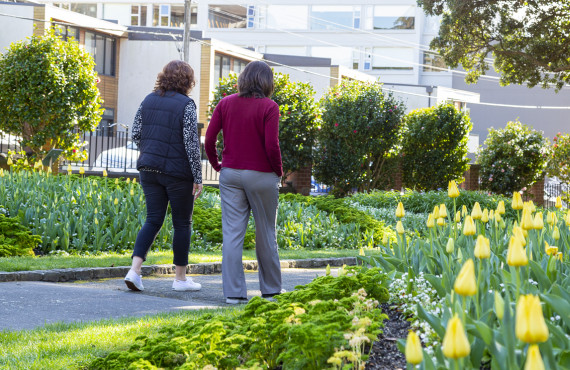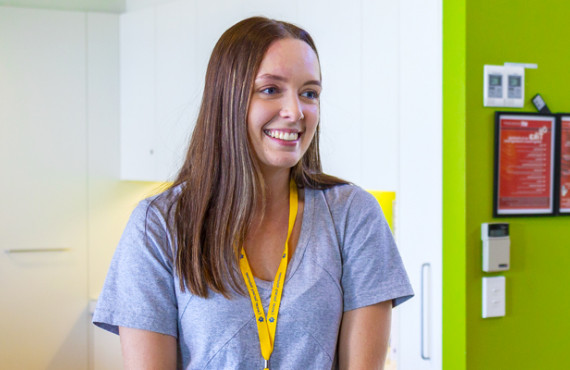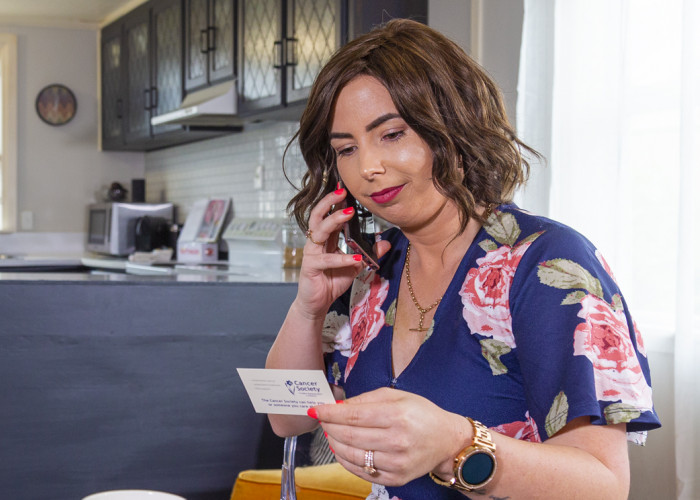A supporter is someone who helps and supports a person through cancer.
You may be a partner, relative, friend or neighbour. Anyone can be a supporter of someone with a cancer diagnosis – it doesn’t matter what your age, gender, sexuality, profession or cultural background is.
Supporters can provide support in different ways:
- practical
- physical
- emotional
- spiritual
You may provide support for a short time or over months or years.
You may not see yourself as a supporter, rather as someone simply taking care of a person who needs you.
You may see this role as a natural extension of your relationship. Being a supporter might mean adjusting the relationship you have with the person already.
The benefits of being a supporter
- supporting someone can be very positive - it can be very satisfying to know that you are making a difference
- you might feel surprised and pleased with how you handled the situation and the new skills you have learnt
- supporting someone with cancer can help you think about your values, and what matters to you
- spending time with the person with cancer can help build your relationship with them and be a rewarding time
- many people say that going through cancer leads to a better understanding of each other, improved communication and a stronger connection
Tips for supporters
If you are an older person supporting someone with cancer, you may have difficulties with your own health. You may feel like you are the only one who can do the support.
When you're supporting someone with cancer, there can be a lot to think about.
Here are a few things to think about:
- having after-hours phone numbers for specialists and hospitals handy
- talking to the healthcare team about getting information about treatment
- checking your understanding of the medications the person with cancer is having
- how you can get help with practical needs, such as housework, shopping, equipment, showering/bathing or meals
- how you will take on new tasks that you are not confident about, such as driving in the city, managing appointments or finances
- looking after your own health with regular visits to your doctor, dentist, optician or other specialists
- keeping your family/whānau involved - they could support you by helping with making changes to appointments, transport, running errands or coming to appointments with you
- taking regular breaks for yourself, such as having a friend come around to sit with the person you're supporting while you go for a walk
- having someone to talk to about how you are coping - talk to a social worker or a doctor who can assess your needs as a supporter
- looking for what support is available online - see below for links
I found it very difficult to cope with the fact that my health was so good. I used to feel so guilty every time Ben had chemotherapy and felt so sick afterwards.
Belinda
Young people as supporters
Being a young supporter can affect your life in many ways. You may find that you can’t concentrate at school or university and don’t have much time to study.
It could be hard to keep up with your friends. You may have to cancel plans to look after the person who has cancer.
As a young supporter, you might do extra things to help your family/whānau – things that your friends won’t necessarily be doing, such as:
- making dinner
- washing the dishes
- cleaning the house
- doing the food shopping
- washing clothes
- looking after brothers or sisters
You may also be asked to do things for the person who has cancer, such as helping them get dressed or helping them with their medicines.
You may be ‘there for them' to listen when they need to talk. Ask the person's permission to say ‘no’ if there are times when it all feels too much for you. It might help to encourage them to have more than one person they can talk to.
You may be worried about what’s happening at home when you’re not there. You may feel angry with the person you’re looking after. You may feel neglected and then feel guilty for feeling that way.
Being a young supporter is a big responsibility. And that can, sometimes, be really hard. But positive things can also come out of the experience. Things like becoming closer to the person you care for, learning new skills and feeling more mature.
It’s very important to remember to look after yourself. You may feel like you have the weight of the world on your shoulders or that you have to be strong for others. But you should only ever take on as much as you can handle.
Tips for young supporters
- if you’re feeling stressed out, talk to someone - it could be a friend, a teacher, another family member, or counsellor
- let your school or college know what’s going on - your teachers can only support you if they know what’s happening at home.
- if you don’t feel comfortable doing something (for example, helping someone go to the toilet), you can say ‘no’ and encourage them to find other sources of support
- make time for yourself and do something that takes your mind off the situation (for example, playing a sport, spending time with friends, painting or walking the dog), you’re still allowed to enjoy yourself and not feel guilty for it
When your support is not wanted
There may be certain tasks that the person you are supporting doesn’t want your help with, such as putting the children to bed or doing the shopping.
It may be hard to step back and let the person with cancer do things for themselves, especially if you can see they are having trouble.
If the person refuses your offer of help, you should respect this. If you are worried about the person with cancer’s safety, you could place a bell nearby that they can use to get your attention if they need to.
You can also talk to your doctor or nurse about getting some help in the home.

If you're supporting someone with cancer, it's important to look after yourself as well.

For many people, having cancer changes how they feel about themselves and how they feel about sex.

We are here to help and support you and your whānau through cancer diagnosis, treatment and recovery…
We know that going through cancer is tough and can raise many questions. You are not alone.
We have health professionals to answer your questions and provide the support you need.
Get in touch

